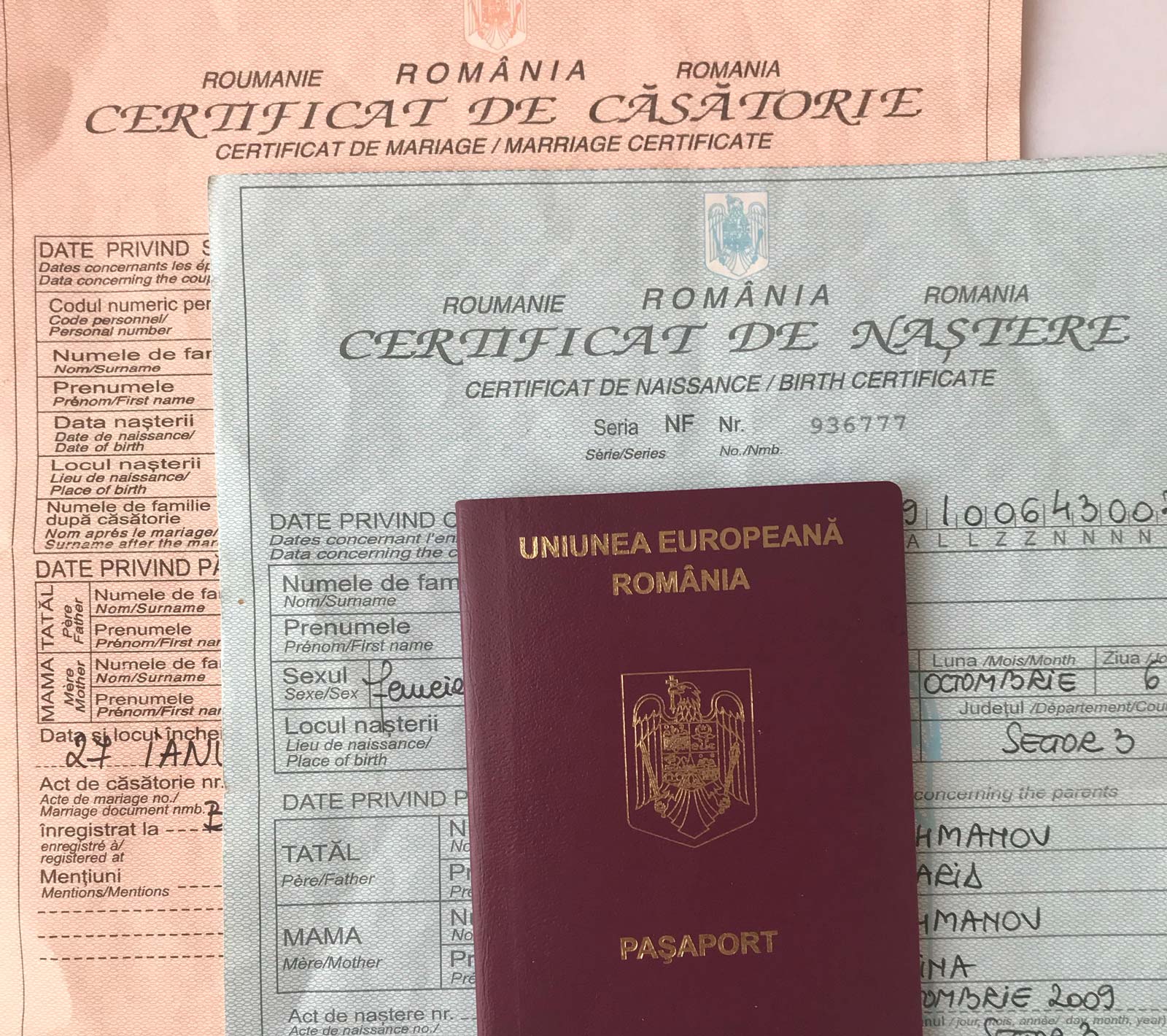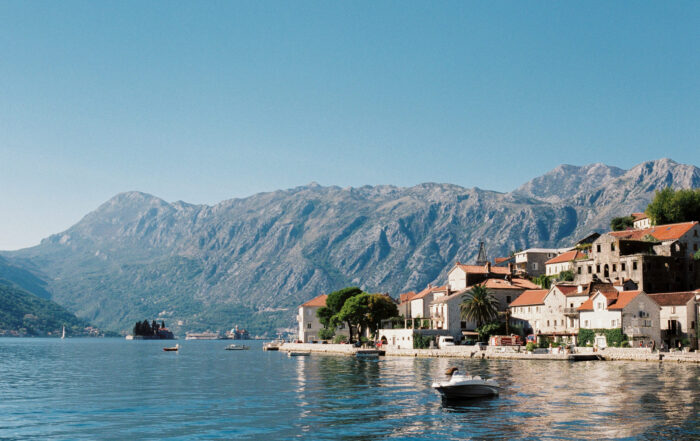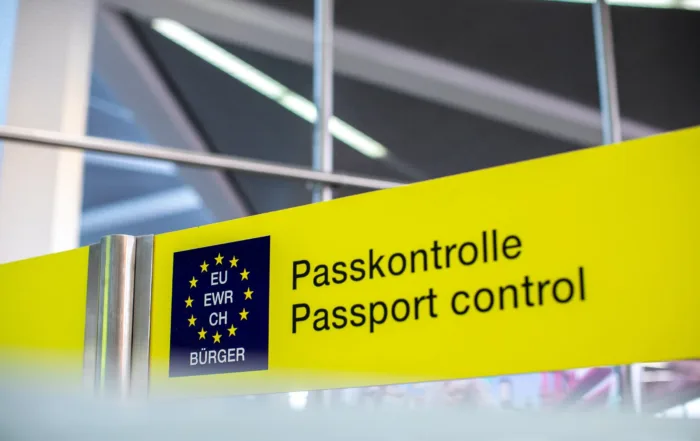Could your family tree open global doors for you?
Could your family tree open global doors for you?

Are you a Citizenship by descent candidate?
Imagine that your family roots could not only give you a deeper understanding of your origins, but also pave the way for global mobility. Citizenship by descent offers precisely this fascinating perspective: It allows you to rediscover your heritage while reaping the benefits of living, working, or studying abroad.
Are you one of the countless people whose ancestors could inadvertently hold the key to an additional citizenship?
It may sound surprising, but millions of people are unaware of the hidden possibility that their family history could grant them dual citizenship. This heritage, passed down through generations, can open unexpected paths to education, employment, and a new home in different parts of the world.
Citizenship by descent acts as a living link between the past and the present, offering a significant number of people the unique opportunity to rediscover their family roots. Unlike citizenship through naturalization or marriage, which is often tied to strict residency requirements or complex bureaucratic processes, citizenship by descent is an innate right – it is simply waiting to be claimed.
What does the term “citizenship by descent” mean?
Essentially, citizenship by descent describes a form of citizenship that is not determined by your place of birth, marriage, or naturalization process, but rather based on the citizenship of your ancestors. Therefore, if a parent, grandparent, or in some cases even a great-grandparent held the citizenship of a particular country, you may be eligible to apply for that country’s citizenship as well. The process is generally relatively straightforward and primarily requires proving your ancestry through official documents such as birth certificates to demonstrate your family connection.
This form of citizenship acquisition is particularly popular within the European Union due to the freedoms it provides.
EU passports are highly respected worldwide and not only offer their holders the right to live and work in all member states of the European Economic Area (EEA), but also allow visa-free or facilitated travel to an average of 180 countries worldwide.
It’s astonishing how many people could unknowingly qualify for such citizenship. It is estimated that over half a billion people outside Europe may have European ancestry and thus be eligible for European citizenship.
In most cases, applying for citizenship by descent does not mean that you have to give up your existing nationality. The acceptance of dual citizenship has become established in industrialized countries: Over 80% of countries in Europe and America allow their citizens to hold two or more nationalities simultaneously.
Which countries offer citizenship by descent?
There are over 50 countries worldwide that offer the opportunity to obtain citizenship by descent. The specific criteria, procedures, and degree of complexity vary considerably from country to country.
I hope this unique formulation appeals to your taste! Let me know if you would like further adjustments.
A World View: Citizenship by Descent in a Global Context
The Middle East: A Restrictive Approach
In the heart of the Middle East, citizenship by descent is a relatively rare phenomenon due to strict national laws. Most nations in this region follow the principle of jus sanguinis, with particular emphasis on the paternal line.
While the flexibility shown by European countries regarding citizenship by descent is rarely found in the Middle East, recent developments in the United Arab Emirates represent a notable exception.
In January 2021, the UAE government amended its Citizenship and Passport Law, allowing select groups of foreign nationals, as well as their spouses and children, to obtain Emirati nationality. This opens up various paths to citizenship, but these are based on mechanisms other than pure descent. These include long-term residence, marriage, naturalization, and investment.
Individuals with a visa who have lived in the UAE continuously for 30 years can apply for citizenship if they meet additional criteria such as basic Arabic language skills, financial independence, and a clean police record.
Another path to citizenship is through exceptional merit, an award given to individuals who have made significant contributions in their respective fields.
North America: A First-Generation Policy
In contrast, countries such as Canada and the United States of America pursue more restrictive policies regarding citizenship by descent. They typically limit eligibility to the first foreign-born generation, requiring at least one parent to be a U.S. or Canadian citizen at the time of the child’s birth.
Asia: A Diversity of Approaches
The Asian continent presents a wide range of approaches to citizenship by descent. Countries such as Japan and South Korea, for example, have strict laws that limit citizenship primarily to children of native parents. Often, the parents’ nationality must be legally established before the child’s birth. This reflects a more conservative approach, heavily based on bloodlines and formal documents, thus limiting the scope for claims based on more distant ancestors.
Europe: An Established Path with Far-Reaching Possibilities
In Europe, citizenship by descent is an established path, particularly in nations with a significant history of emigration, such as Ireland, Italy, and Germany. Some European Union member states even extend eligibility to descendants of great-grandparents or even more distant relatives, provided the lineage can be fully documented. This not only grants the right to live, work, and travel freely within the European Union, but also offers significant cultural and economic benefits.
The Path to Citizenship by Descent: A Guide
The journey to citizenship by descent can vary from country to country in its specific requirements. However, fully documenting your family connection always forms the foundation of any application.
Here is a detailed overview of the typical steps:
- Exploring eligibility requirements:
Before you begin the process, thorough research is essential. Make sure your chosen country even offers citizenship by descent and familiarize yourself with the detailed criteria. Often, eligibility revolves around whether a parent, grandparent, or in some cases even a great-grandparent held the citizenship of that country. Note that some countries may impose generational restrictions. - Gathering evidence:
The core of your application consists of documents that prove your direct lineage to the ancestor whose citizenship you are claiming. Typically, these include birth certificates, marriage certificates, and death certificates. Additionally, proof of your ancestor’s citizenship may be required, such as a passport or national identity card. - The importance of translation and legalization:
If your documents are not in the official language of the target country, a professional translation is essential. These translations must then be legally recognized for international use. This is often done by affixing an apostille, the specific procedure for which depends on the country in question. - The formal application:
The next step involves carefully completing the official application form issued by the relevant authority—be it the consulate, immigration authority, or civil registry office of the country. Submit this form along with all required supporting documents. While some countries allow or even prefer online submission, in others an in-person appearance may be necessary. You may also be invited to an interview where questions will be asked about your application and your personal background. - Patience during the processing time:
The length of the processing time can vary greatly, influenced by the country in question and the complexity of your individual case. It is advisable to check the status of your application regularly and respond promptly to requests for additional information. - Obtaining your new citizenship:
After your application has been successfully reviewed and approved, you may be required to attend a formal ceremony. In other cases, you will receive your new passport and the associated citizenship documents conveniently by mail.
We’ve helped hundreds of people move their businesses overseas, legally reduce their taxes, and become dual citizens. We are focused on high-net-worth individuals and their families as well as corporations wishing to invest their offshore companies or even secure their wealth in offshore financial centers around the world. We will help you to find the best solution for setting up an offshore or onshore company. Another special area of our full-service consulting is the investment opportunity and solution in Europe, especially in the Balkans, Africa, Asia, UAE, the Caribbean and the Pacific.
If you are looking for it, please feel free to contact us. We create a holistic plan that serves your purpose.
The TCME Group Worldwide as well its partner in Vanuatu are accredited, licensed and authorized agents and facilitators of the Government of Vanuatu for the citizenship programs of the VDSP and the CIIP in Vanuatu.
GCI UNIT Worldwide by TCME Worldwide Group, designs and implements customized, holistic strategies for successful investors and entrepreneurs to legally reduce their tax bills, diversify and protect their wealth, invest abroad, gain a second citizenship and live a freer life worldwide to lead.
YOUR CHANCE FOR A BETTER LIVE
TCME Worldwide Group firm is a leading professional International Business Investment and Advisory Firm for Foreign Economic Relations. Our range of services includes:
- Offshore and Onshore Company Formation,
- international Business & Management
- Citizenship & Residency (Advice on residency and citizenship by investment programs, VIP citizenship programs in cooperation with more than 70 countries)
- Investments & Corporate Financing
- Advisory for Foreign Economic Relationship
- Diplomatic Consultancy & Public Affairs
If you would like to discuss your internationalization and diversification plans, book a consulting session* or email us under: [email protected]
*A counseling session is a conversation about your portfolio and goals. It does not constitute legal, financial, tax or investment advice.
TCME Worldwide Group – Global Investments –
Level 33, Ilham Tower, 8 Jalan Binjai,
Kuala Lumpur 50450, Malaysia
www.tcme.company
www.citizenship-news.com
International Phone: +66 99091 8357 (also for BOTIM, Signal, Viber, Telegram)
Malaysia Phone: +603 2169 7057
Montenegro Phone: +382 69 150 130 (WhatsApp)
Telegram https://t.me/passport_Vanuatu
Telegram https://t.me/passport_news





